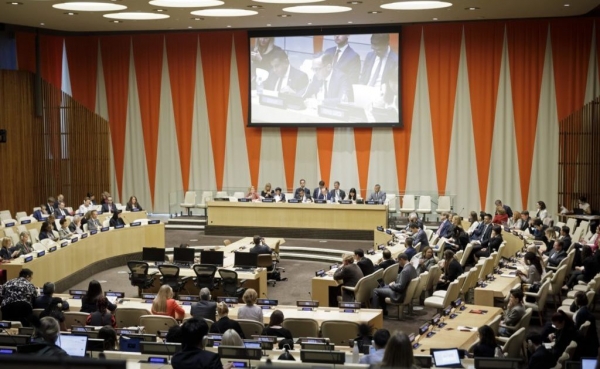More than a decade after the UN Security Council first recognized the use of sexual violence as a weapon of war, the discussion concerning the human rights issue of sexual violence has heightened. Numbers in official reports fail to capture the full range of abuses in all global conflicts and most notably across Africa and the Middle East. With many acts of sexual violence going unreported, underlying accounts of gender-based discrimination are largely ignored.
As a response to the escalating brutality against girls and women, UN Security has once again taken steps to combat this growing problem. Under the presidency of Germany, in April 2019, the landmark UN Security Council Resolution 2467 was passed by 13 votes in favour, no votes against, and China and the Russian Federation abstaining. Resolution 2467 affirms the commitment of the United Nations to reinforce previous resolutions relating to women, peace, and security, while concurrently emphasizing the protection, and promotion of the human rights of women. This also includes an enhanced dedication to engaging women at all levels of decision-making.
Above all, Resolution 2467 demands the complete termination of any acts of sexual violence by parties engaged in armed conflict. There is a vital need for nation-states to create their own commitments and implementation plans in a time-bound manner that addresses sexual violence in every form. This particularly encourages existing sanction committees to issue sanctions against those who order sexual violence as a weapon of war during the conflict. In addition, the UN Security Council hopes to confront the realities of sexual violence by looking at the systemic roots of the issue, calling on nation-states to consider the elimination of sexual violence when forming resolutions, peace agreements, and other legislation. Such actions are predicted to foster greater visibility of these abuses.
A distinctive feature of the resolution is its incorporation of a survivor-centered approach, which focuses on the prevention and recovery efforts of those who have survived following acts of sexual violence by the Member States of the United Nations. Through a survivor-centered approach, survivors are to receive access to services such as medical and psychosocial care, and help the victim be free from the discrimination and stigma associated with sexual violence. In some cases, this involves care for children born of rape. Negligence to comply with the survivor-centered approach will, now, result in a marked violation of international law.
Human rights groups and officials have widely applauded the passing of Resolution 2467. Pramila Patten, the Special Representative of the Secretary-General on Sexual Violence in Conflict, expressed that sexual violence must always remain at the forefront of discussion within the international community. “We have not yet improved the situation on the ground in a sustained, meaningful way.” She shared that observing power structures and belief systems around the world could forge a culture enshrined in accountability instead of a continual dismissal of sexual violence. “Wars are still being fought on and over the bodies of women and girls.”
Resolution 2467 is a crucial aspect in catalyzing the shift away from the use of sexual violence as a weapon of war. However, a push for national ownership and ramifications for abuse must be enforced by both governments and the United Nations. This could be through the development of a comprehensive process to punish perpetrators of sexual violence. With more instruments existing to protect civilians from sexual violence, their steadfast enforcement and a guarantee of health services are absolute necessities. One recommendation is for the UN Security Council to establish a survivor’s fund with its Member States or to explore reparations for survivors by other means. Furthermore, nation-states may want to form a court by a treaty that strictly hears cases of sexual violence through a global support coalition.
Measures against sexual violence in war must be fully implemented, pushing for total accountability and empowering survivors.
Original resolution available here:
To read more, visit:
https://www.un.org/press/en/2019/sc13790.doc.htm
https://reliefweb.int/report/world/hidden-victims-sexual-violence-war
Author Christina Borst; Editor Shrabya Ghimire







